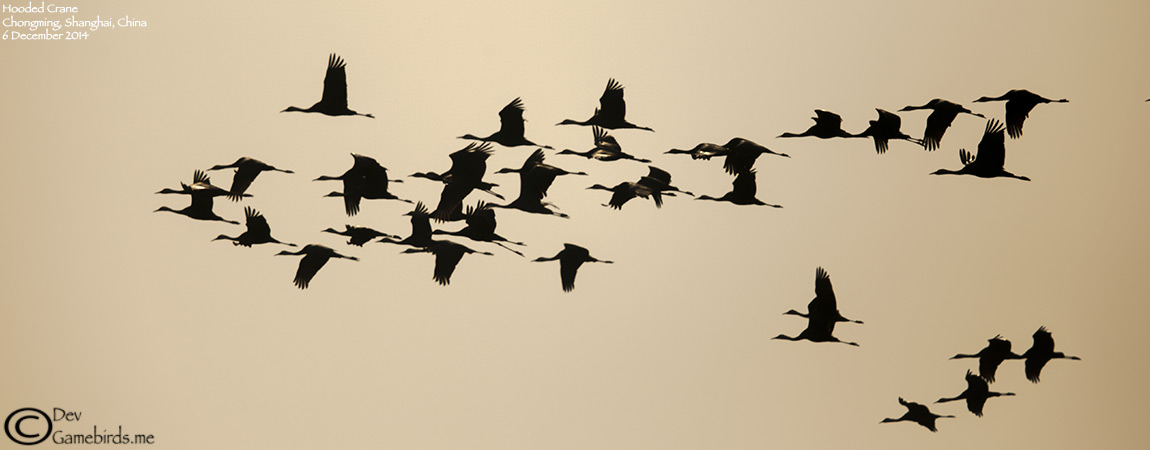
Autumn has quickly faded out while the pale-arctic winter settled in slowly. It’s time to check out whether the most elegant of the bird species has arrived in Shanghai. 6th December, i rolled out early to Chongming with deep thoughts of how the habitat would have changed in the past one year. Even though i want to think positive that the habitat would have developed given the “nature reserve” status but deep down in my gut i had a very bad feeling.
After an hour’s ride from the city centre, i finally reached the the Dongtan Nature Reserve. Usually past couple of years, one can drive all the way to the board walk, now its been cut down to the wetland park which is atleast 500-1000 meters before the board walk. With plenty of “new staff’s” with the stlyish looking “winter uniform” i guess this is the start of the “Tourist Friendly” nature reserve.
I genuinely avoided the golf cart and the board walk and took the side road from the entrance gate to reach the dirt track of the reserve. To my surprise there were two togs in their respective cars scouting the area. I hardly seen photographers away from the board walk. After couple of ,mins of scouting, the target bird of the day was found. Two adult “Comman Cranes” with a juvenile bird were feeding on the far southern end of the reserve and soon were joined by 50+ “Hooded Cranes“, that’s right, “The Hoods are back in the hood”. While i was scanning the sedge of cranes in flight, a “Northern Lapwing” flew past behind the Cranes. To add insult to the ever shrinking habitat, a new sea wall is coming right next to the board walk and it goes all over the southern end and stretches to the north east. On a positive side, the sea wall could give access to the least explored places further down south of the board walk where the wintering geese always love to settle in. On the other hand, for the past two winter, the water fowl was completely absent in Dongtan and what worse this new sea wall can make to their absence?
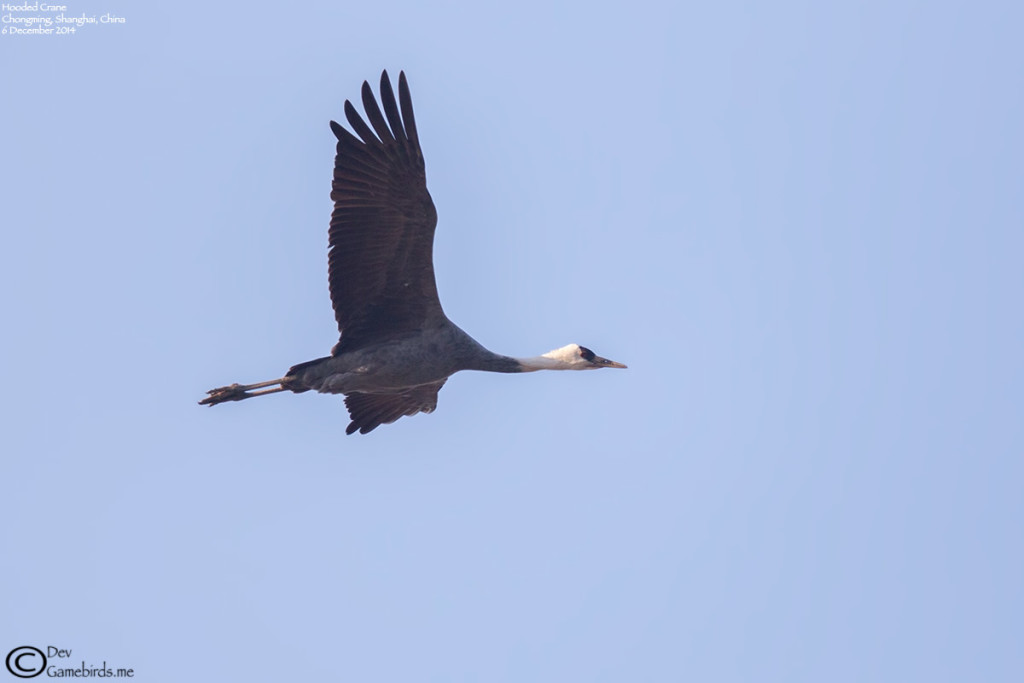
I made my way to the “Research ponds” on the eastern end of the the reserve occasionally stopping at small ponds on the way. 4 “Temminck’s Stint” was a nice surprise as they usually move during the migrations. These birds were clearly overwintering. I had my first “Rustic Bunting” on the dirt track running perpendicular to the wetland park in 2011 and its been always a reliable spot of them. The additional crew were Black-faced and Elegant Buntings. A “Chestnut-eared Bunting” played hide&seek with me in the Agriculture field.
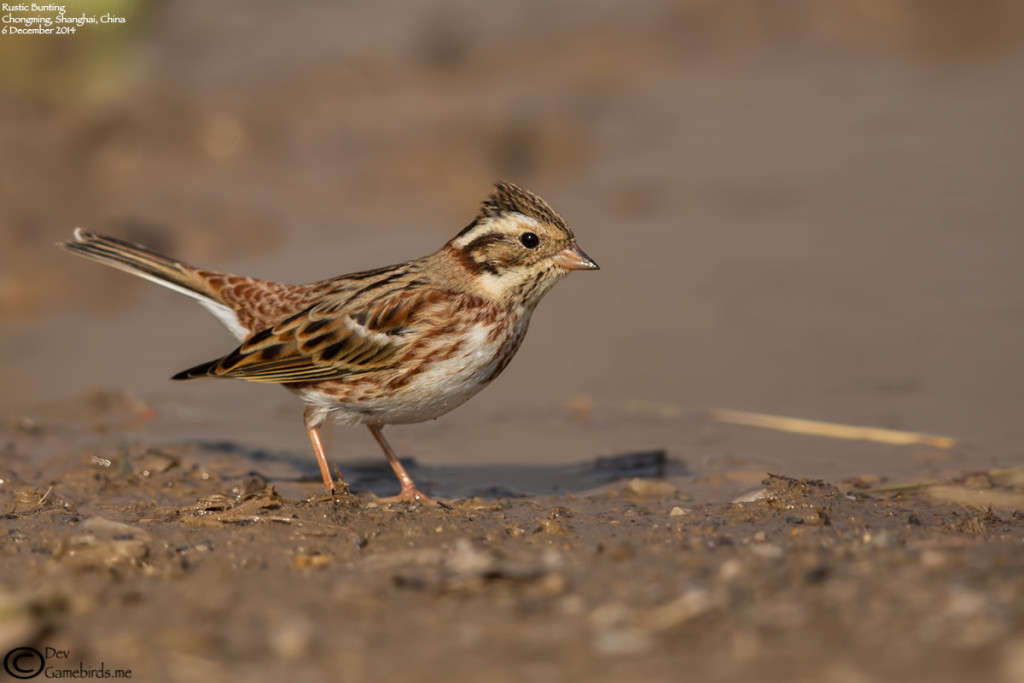
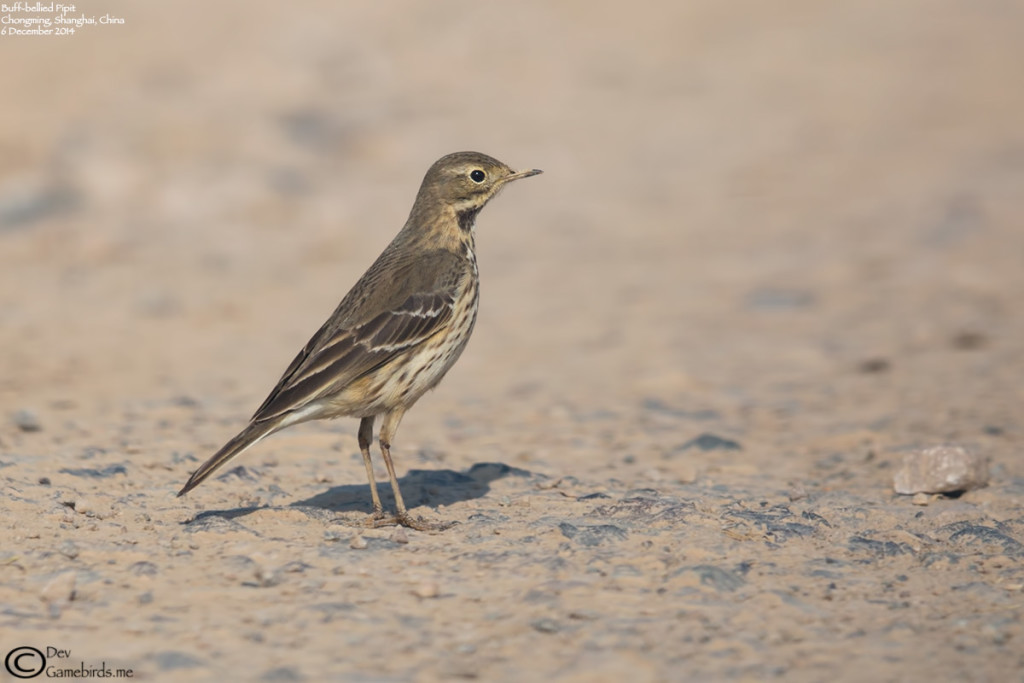
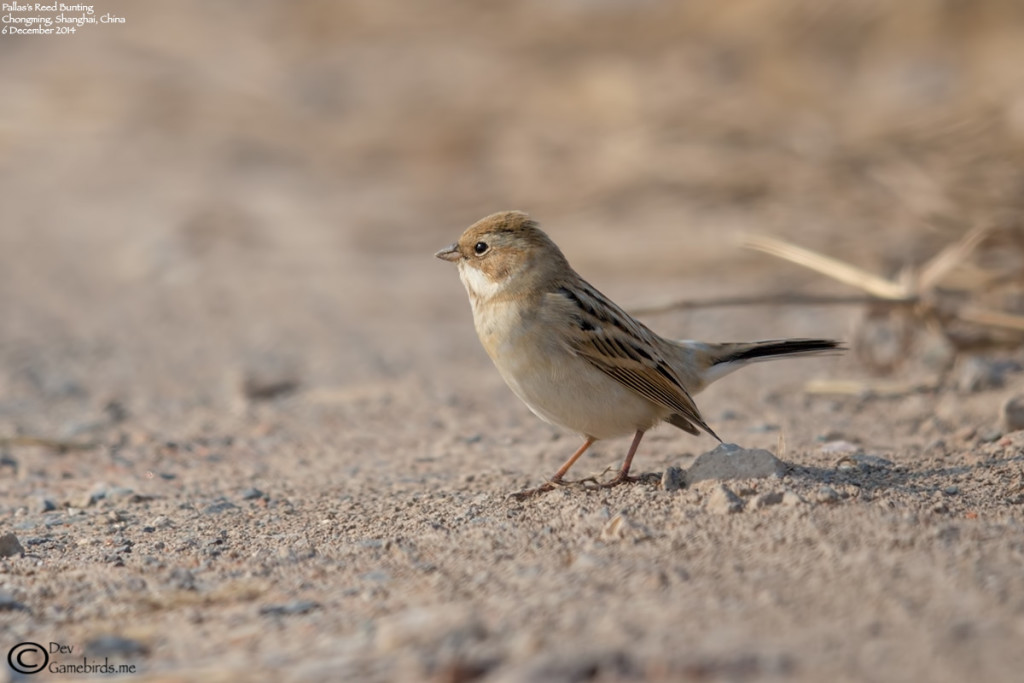
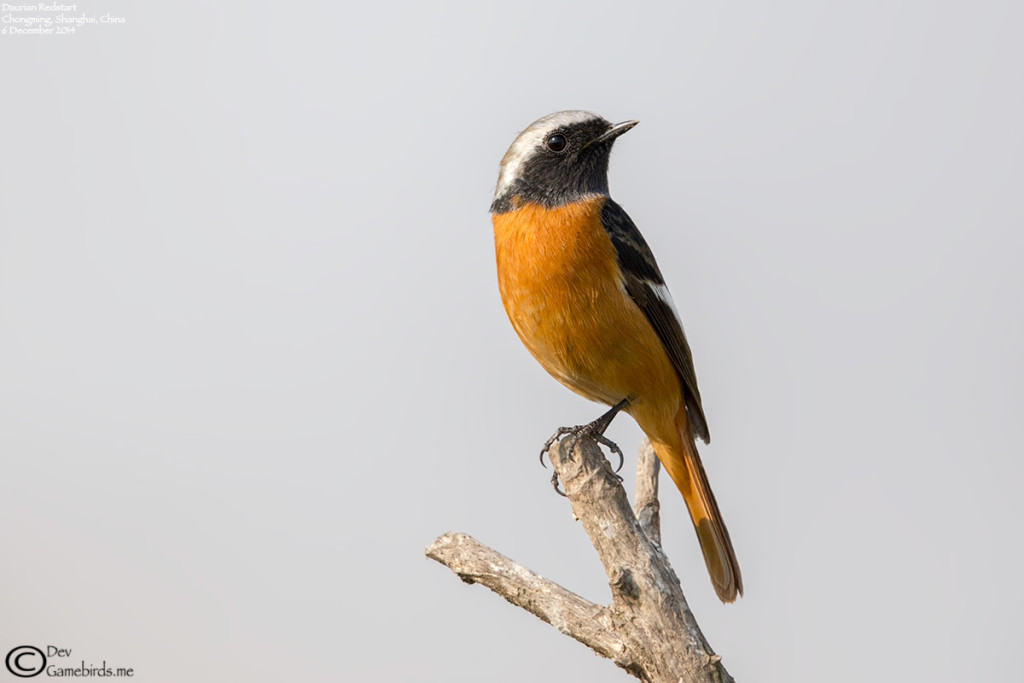
The “Research Ponds” were completely drained out and the waterfowl was totally gone. Few Ducks took off from the swamps, some notable Ducks were Northern Shoveler, Northern Pintail. A small flock of “Eurasian Teal” were taking bath in a small pond and completely ignored by presence, giving me some decent shots before a juvenile Peregine Falcon attempted a failed dive towards the duck.
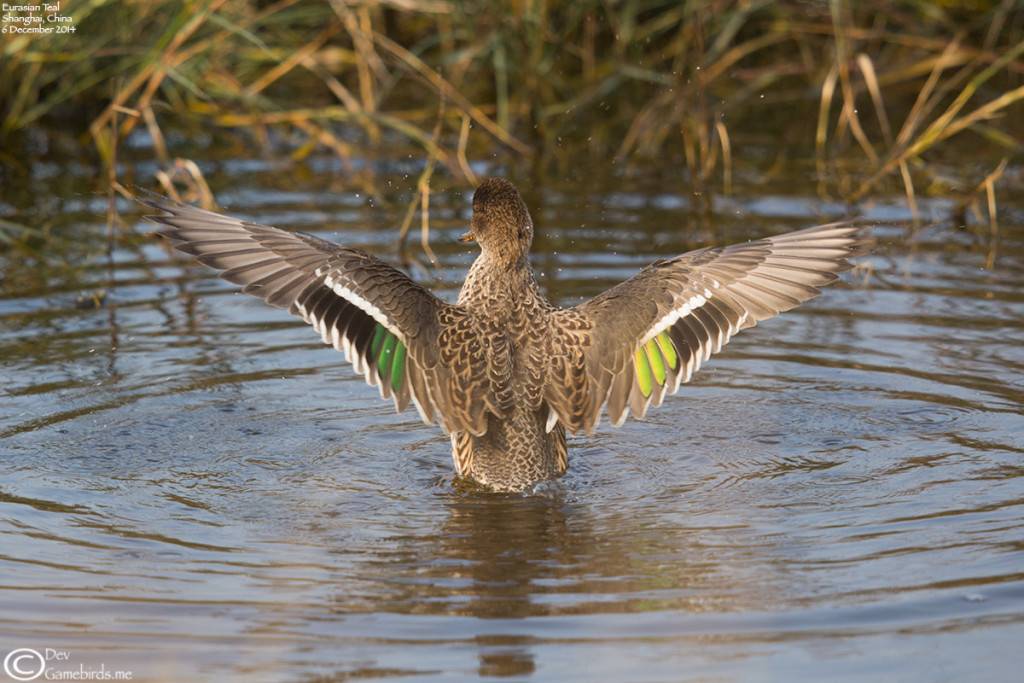
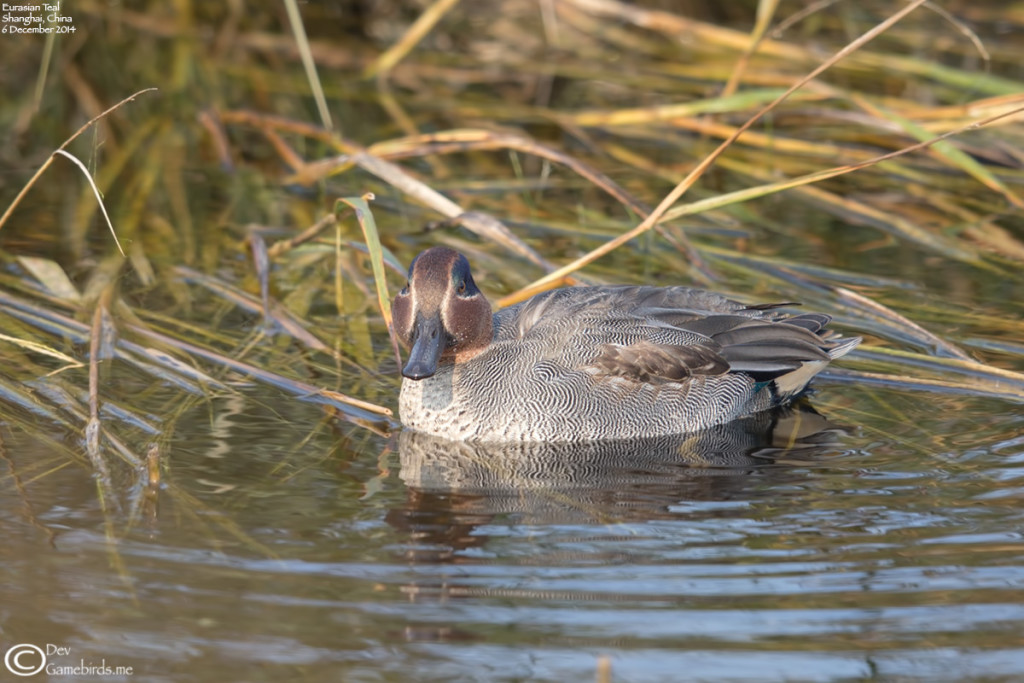
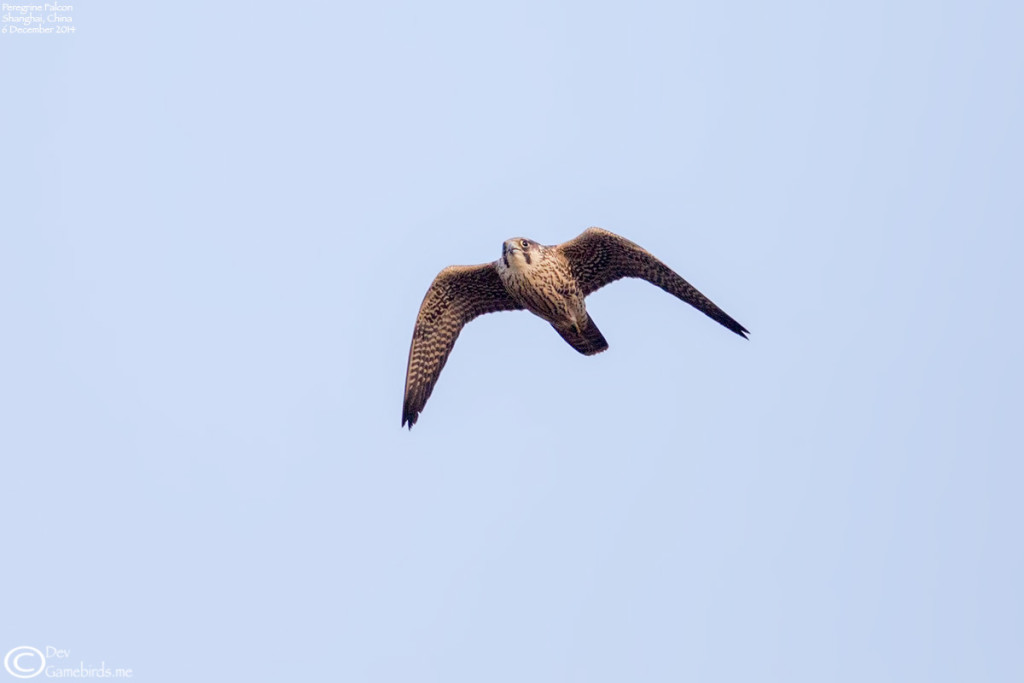
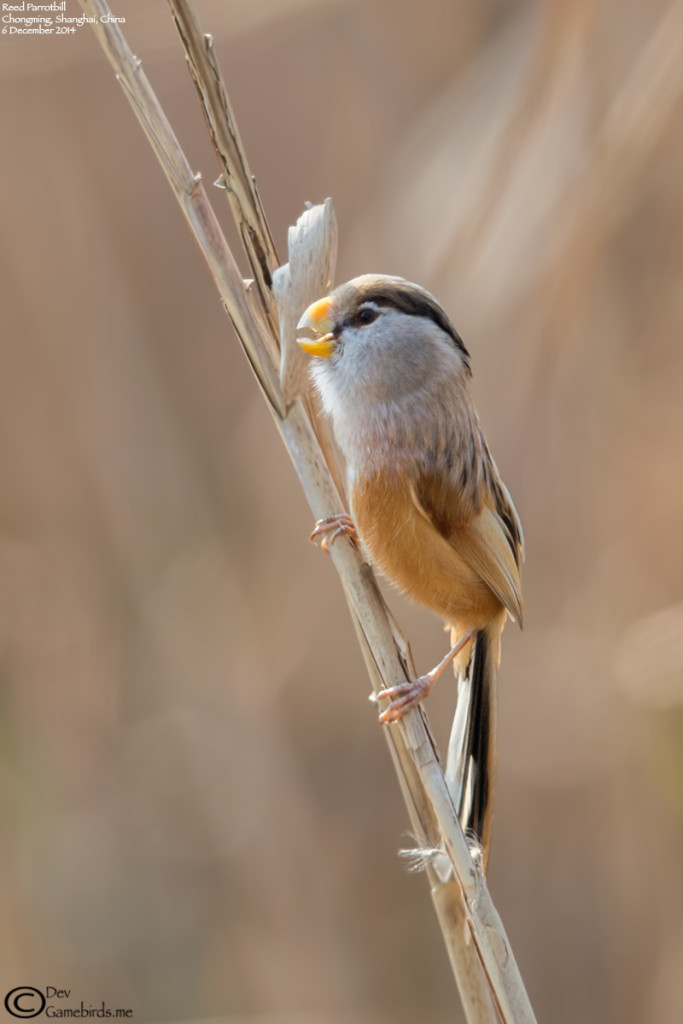
Overall an “Ok” winter day and sad to see the habitat disappearing in an alarming rate.
Checklist :
| Species |
| Gadwall |
| Eastern Spot-billed Duck |
| Northern Shoveler |
| Northern Pintail |
| Green-winged Teal |
| Ring-necked Pheasant |
| Little Grebe |
| Great Cormorant |
| Yellow Bittern |
| Gray Heron |
| Great Egret |
| Little Egret |
| Chinese Pond-Heron |
| Black-crowned Night-Heron |
| Eastern Marsh-Harrier |
| Northern Harrier |
| White-breasted Waterhen |
| Eurasian Moorhen |
| Eurasian Coot |
| Common Crane |
| Hooded Crane |
| Northern Lapwing |
| Kentish Plover |
| Little Ringed Plover |
| Common Sandpiper |
| Green Sandpiper |
| Common Greenshank |
| Wood Sandpiper |
| Temminck’s Stint |
| Dunlin |
| Common Kingfisher |
| Eurasian Kestrel |
| Peregrine Falcon |
| Long-tailed Shrike |
| Chinese Penduline-Tit |
| Light-vented Bulbul |
| Pallas’s Leaf Warbler |
| Zitting Cisticola |
| Plain Prinia |
| Reed Parrotbill |
| Vinous-throated Parrotbill |
| Red-flanked Bluetail |
| Daurian Redstart |
| Pale Thrush |
| Dusky Thrush |
| Naumann’s Thrush |
| Crested Myna |
| White-cheeked Starling |
| Eastern Yellow Wagtail |
| American Pipit |
| Chestnut-eared Bunting |
| Rustic Bunting |
| Yellow-throated Bunting |
| Black-faced Bunting |
| Pallas’s Bunting |
| Brambling |
| Oriental Greenfinch |
| Eurasian Tree Sparrow |
Recent Comments